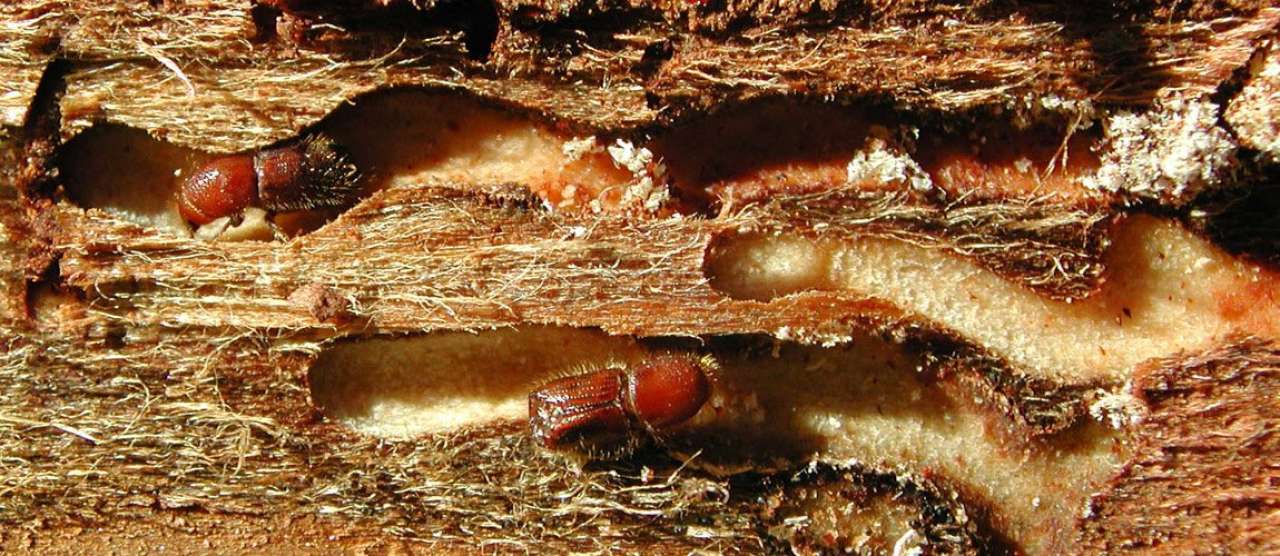Climate change leads to an increased northern bark beetle population

Photo: Bjørn Økland.
The spruce bark beetle killed close to 10 million cubic metres of Norway spruce during the outbreak in southern Scandinavia in the 1970s. New studies suggest more beetle attacks in northern spruce forests in the future.
The northernmost European spruce forests have so far been spared mass attacks of spruce bark beetles. The beetle is present here, but the temperature has probably been too low for it to cause damage. Scientists in both Finland and Norway now observe more bark beetles, and signs of attacks, also in these areas.
In Norway, spruce bark beetles are found in Trøndelag and Helgeland, but here there was no attack in the 1970s. In the warm summers of 2008 and 2009, however, there was a sharp increase in the number of bark beetles in monitoring traps and the level was equivalent with that in East Norway. Instances of forest death increased, which is unusual in this part of the country. Bark beetle attacks have also been unusual in Finland, but here too the level of beetles and attacks has been increasing, especially after 2010.
Several factors indicate that climate change can lead to increased bark beetle outbreaks in northern areas. It is likely that the spruce bark beetle, which is a cold-blooded organism, reacts to changes in the climate - especially increased temperature. It is also known that changes in the climate can weaken spruce and make it more susceptible to beetle attacks. Warmer summers may lead to our getting two generations of spruce bark beetles per summer instead of one, and thus two periods with beetle attack per year.
NIBIO coordinates an annual monitoring of the spruce bark beetle with pheromone traps in over 100 municipalities. In addition to providing data for research on climate effects, this is an important tool for forest management. With such information, forest management can introduce countermeasures to keep the beetle populations low, for example removing affected trees before the next generation of beetles fly out.
Contacts

Contacts

